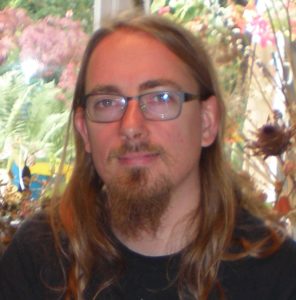
Owen Coggins has completed a doctorate in Religious Studies and Music at the Open University, investigating mysticism, ritual and religion in reception of drone metal, an extreme form of popular music. He continues to research ambiguity, mysticism and marginal religion in popular music cultures, and is currently a Researcher at Nordoff Robbins, a music therapy charity. Recent articles have appeared in the journals Implicit Religion, Diskus, and Metal Music Studies, and a monograph is forthcoming. See open.academia.edu/OwenCoggins for more details.
In this interview, Owen Coggins joins us to talk about the use of religious (and sacrilegious) language and imagery in Drone Metal, a genre which stretches metal to low, slow, repetitive extremes. Drawing on the work of Michel de Certeau, he tells David Robertson that the prevalence of language relating to mysticism and "spiritual experience" may be due to the genre's focus on the physicality of the musical experience.
Drone music is often described with terms such as violence, aggression, pain and suffering, but it is these markers of extremity which allow a sense of catharsis, dark spirituality and even healing according to listeners. Drone metal, then, addresses deep issues of importance in rather different musical and conceptual registers to Hoondert’s requiem composers and audiences.
This work is licensed under a Creative Commons Attribution- NonCommercial- NoDerivs 3.0 Unported License.
The views expressed in podcasts, features and responses are the views of the individual contributors, and do not necessarily reflect the views of The Religious Studies Project or our sponsors. The Religious Studies Project is produced by the Religious Studies Project Association (SCIO), a Scottish Charitable Incorporated Organisation (charity number SC047750).